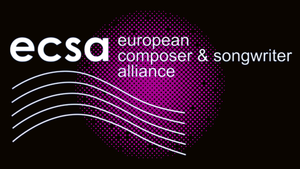The European Composer And Songwriter Alliance is the latest creator organisation to express concern about the lack of transparency around the big AI licensing deals that are now being announced by the major record companies, many of which cover the rights in songs as well as recordings. Of particular concern for songwriters is how income from these deals will be split between the different rights.
The creator group notes that statements released by Universal Music and Warner Music about their big AI deals have claimed that new licensing agreements with the likes of Udio and Suno “will empower and protect artists and songwriters”. However, ECSA adds, those statements have “provided very little detail about the involvement, consent and remuneration” of creators.
Artist groups have also raised concerns about the AI deals, demanding wider and stronger commitments from the majors when it comes to securing creator consent, and asking how money generated by these deals - including any damages relating to past copyright infringement - will be shared with artists.
But for songwriters, a key concern is how new AI revenues will be split between the recording rights and the song rights. In streaming, approximately 80% of the money paid into the music industry flows to the copyright in the recordings, controlled by labels and music distributors, with approximately 20% flowing through music publishers and collecting societies to songwriters.
This split came about because the industry’s original digital music deals - mainly in relation to download stores - took the CD business model as a starting point, where the vast majority of the money from each CD sale went to the recording. Songs get a bigger share on streams then they did on CD sales, but many songwriters and independent publishers have always argued that the 80/20 split on streaming is unfair.
With the majors now negotiating the first AI licensing deals - in secret with very little transparency about the business models being developed - there is a real risk, ECSA says, that they will “replicate the licensing model of streaming in AI music services”, which would mean “undervaluing song rights”.
Prior to the flurry of major label AI licensing deals, independent publisher Kobalt and indie label repping Merlin announced a deal with AI company Elevenlabs. It’s thought that under those deals the song rights represented by Kobalt will earn more or less the same as the recording rights controlled by Merlin labels. Songwriters would obviously like to see that model applied across the industry.
When it comes to negotiating licensing deals with any digital company - including streaming services and AI platforms - the majors can only usually agree terms for some of their publishing catalogues, most commonly Anglo-American repertoire. With other catalogues, the publishers don’t actually control the specific rights being exploited, and it’s the collecting societies that negotiate those deals.
However, if the majors are pushing for a licensing model that favours recordings over songs, and because they often agree their deals first, it will create challenges down the line when the collecting societies negotiate their deals. Because the AI companies may claim they’ve already allocated the majority of their music licensing budgets to the recording rights and the labels that control them.
Of course the majors - as dominant players in both recorded music and music publishing - will always argue they are protecting the interests of both artists and songwriters. But because record deals often pay artists a minority share of recording income, while publishing deals always pay writers a majority share of publishing income, the majors do have a commercial interest in recordings being allocated more.
ECSA unsurprisingly believes “that any AI licensing deal should involve parity” between recordings and songs, and, it says, “we implore Universal, Warner and Sony to provide transparency over the licensing terms they have agreed to on behalf of songwriters”, and “to ensure writers receive their fair share”.
The creator group then notes how the majors have been very vocal in recent years about the need for AI companies to be transparent about the music they are using to train their models. “After having repeatedly asked for transparency from AI companies”, ECSA says, “we believe the three majors should now provide that same transparency” to music creators.
Meanwhile, ECSA concludes, European lawmakers and regulators also have a role to play here, to “consider the competitive dimension” of the majors’ big AI deals and “their consequences for the European music market”. And when it comes to EU competition regulators, they should ensure the evolving AI music market is considered as they review Universal’s ongoing bid to buy Downtown Music.

